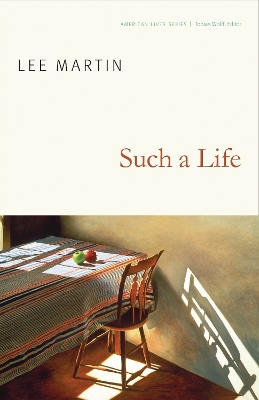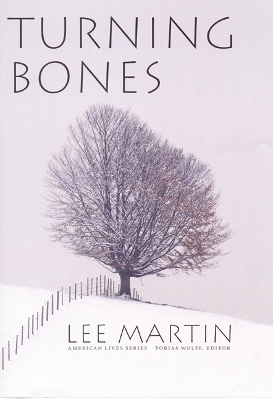American Lives
2 total works
Lee Martin tells us in his memoir, “I was never meant to come along. My parents married late. My father was thirty-eight, my mother forty-one. When he found out she was pregnant, he asked the doctor, ‘Can you get rid of it?’” From such an inauspicious beginning, Martin began collecting impressions that, through the tincture of time and the magic of his narrative gift, have become the finely wrought pieces of Such a Life.
Whether recounting the observations of a solemn child, understood only much later, or exploring the intricacies of neighborhood politics at middle age, Martin offers us a richly detailed, highly personal view that effortlessly expands to illuminate our world.
At a tender age Martin moved to a new level of complexity, of negotiating silences and sadness, when his father lost both of his hands in a farming accident. His stories of youth (from a first kiss to a first hangover) and his reflections on age (as a vegan recalling the farm food of his childhood or as a writer contemplating the manual labor of his father and grandfather) bear witness to the observant child he was and the insightful and irresistible storyteller he’s become. His meditations on family form a highly evocative portrait of the relationships at the heart of our lives.
Whether recounting the observations of a solemn child, understood only much later, or exploring the intricacies of neighborhood politics at middle age, Martin offers us a richly detailed, highly personal view that effortlessly expands to illuminate our world.
At a tender age Martin moved to a new level of complexity, of negotiating silences and sadness, when his father lost both of his hands in a farming accident. His stories of youth (from a first kiss to a first hangover) and his reflections on age (as a vegan recalling the farm food of his childhood or as a writer contemplating the manual labor of his father and grandfather) bear witness to the observant child he was and the insightful and irresistible storyteller he’s become. His meditations on family form a highly evocative portrait of the relationships at the heart of our lives.
Farmers and pragmatists, hardworking people who made their way west from Kentucky through Ohio and Indiana to settle at last in southern Illinois, Lee Martin's ancestors left no diaries or journals or letters; apart from the birth certificates and gravestones that marked their comings and goings, they left little written record of their lives. So when Lee, the last living Martin, inherited his great-grandfather's eighty acres and needed to know what had brought his family to this pass and this point, he had only the barest of public records-and the stirrings of his imagination-to connect him to his past, and to his beginnings. Turning Bones is the remarkable story brought to life by this collaboration of personal history and fiction. It is the moving account of a family's migration over two hundred years and through six generations, imagined, reconstructed, and made to speak to the author, and to readers, of a lost world. A recovery of the missing, Turning Bones is also one man's story of love and compromise as he separates himself from his family's agrarian history, fully knowing by book's end what such a journey has cost.

